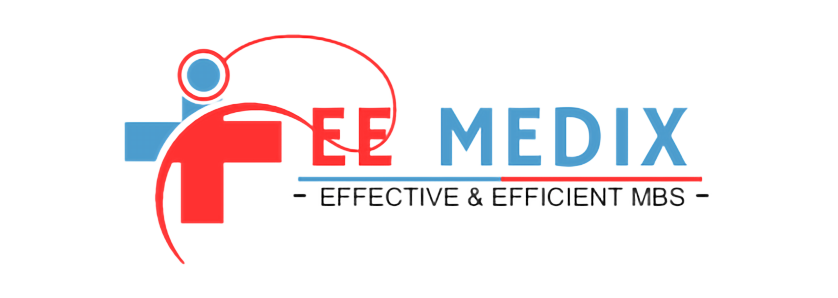Evolving landscape of healthcare, efficient and accurate medical billing is a critical component of ensuring the financial health of cardiology practices. Cardiologists play a pivotal role in diagnosing and treating heart-related ailments, but their expertise should not be overshadowed by the complexities of medical billing. This article dives deep into the world of cardiology medical billing, shedding light on key aspects that can make or break a practice’s financial success.
The Importance of Accurate Billing
Streamlining Cardiology Billing Processes
Effective cardiology medical billing starts with a streamlined process. The efficient handling of patient data, insurance claims, and payment collections is paramount. Medical billing professionals play a crucial role in ensuring that every service rendered by a cardiologist is properly coded and billed, leaving no room for errors or oversights.
Maximizing Reimbursements
Cardiology procedures can be intricate and multifaceted, often involving a combination of diagnostic tests, consultations, and follow-ups. To maximize reimbursements, it’s imperative to have a deep understanding of the complex billing codes associated with cardiology services. This not only ensures that you are billing for all services provided but also that you are receiving the maximum allowable reimbursement from insurance companies.
Navigating Cardiology-Specific Codes
Cardiology, as a specialty, comes with a unique set of billing codes that require in-depth knowledge and expertise. Here are some of the most common cardiology-specific codes:
CPT Codes
- CPT Code 99213: This code is used for established patient office visits. Ensuring the proper utilization of this code is essential to bill accurately for follow-up appointments.
- CPT Code 93306: This code is specific to echocardiograms. Billing for echocardiograms must be meticulous and compliant with insurance regulations.
ICD-10 Codes
- ICD-10 Code I21.09: This code represents a myocardial infarction involving other coronary artery segments. Precise diagnosis coding is critical for accurate billing.
- ICD-10 Code I50.9: This code is for heart failure, unspecified. Properly coding heart failure diagnoses is vital for receiving appropriate reimbursements.
HCPCS Level II Codes
- HCPCS Code G0422: Used for the initial hospital care of a patient with acute myocardial infarction. Accurate coding of hospital care is essential for revenue optimization.
Staying Compliant with Regulatory Changes
The world of medical billing is in a constant state of flux, with regulations and guidelines frequently changing. Staying compliant with these changes is not only essential for ethical practice but also for maintaining revenue streams. Keeping up-to-date with the latest updates from organizations like the Centers for Medicare & Medicaid Services (CMS) and the American Medical Association (AMA) is crucial.
Leveraging Technology
In the digital age, technology has become an indispensable tool in cardiology medical billing. Advanced billing software can automate many aspects of the billing process, reducing the likelihood of errors and speeding up reimbursements. Additionally, Electronic Health Records (EHR) systems are integral for accurate documentation and seamless billing.
Outsourcing vs. In-House Billing
The Case for Outsourcing
Outsourcing cardiology medical billing to specialized companies has gained traction in recent years. This approach offers several benefits:
- Expertise: Outsourced billing companies specialize in healthcare billing and are well-versed in the nuances of cardiology billing codes.
- Cost Efficiency: Outsourcing can often be more cost-effective than maintaining an in-house billing department, considering overhead costs and staff salaries.
- Focus on Patient Care: By delegating billing responsibilities, cardiologists can dedicate more time to patient care, enhancing the quality of healthcare services.
The In-House Advantage
While outsourcing has its merits, some cardiology practices prefer in-house billing for the following reasons:
- Control: In-house billing allows for greater control over the billing process and the ability to customize it to the practice’s specific needs.
- Data Security: With sensitive patient data involved, some practices prioritize the security offered by in-house billing.
FAQs – Cardiology Billing Services
1. What are the key challenges in cardiology medical billing?
Cardiology medical billing presents challenges such as accurately coding complex procedures, navigating changing regulations, and ensuring timely reimbursements from insurance providers.
2. How can outsourcing cardiology billing benefit my practice?
Outsourcing can provide expertise in cardiology billing, cost efficiency, and the freedom for cardiologists to focus on patient care while experts handle billing processes.
3. What should cardiology practices look for in a billing service provider?
Cardiology practices should seek billing service providers with experience in cardiology-specific codes, a commitment to compliance, and a proven track record in maximizing reimbursements.
4. Are there risks associated with outsourcing cardiology billing?
While outsourcing can be beneficial, it’s essential to choose a reputable provider to minimize risks associated with data security and compliance.
Conclusion
Cardiology medical billing is an intricate and specialized field that requires unwavering attention to detail and compliance with ever-evolving regulations. To ensure the financial health of cardiology practices and maximize revenue, it is imperative to streamline billing processes, understand cardiology-specific codes, and adapt to technological advancements.

